The Gift of Rain is a first novel by Malaysian born author Tan Twan Eng. It was longlisted for the Booker in 2007, and I think could comfortably have been shortlisted in most years (whether it should have been in 2007 I can’t say, not having read that year’s shortlist).
It is a sweeping novel of wartime Penang, a small island in the strait of Malacca off northwest Malaya. Opening in the modern day with its narrator, Phillip Hutton, receiving a visit from an elderly Japanese woman who has memories of his wartime friend and teacher Endo-San and who asks Hutton to tell her of his time with Endo-San during the pre-war and war years. What follows is a narrative of memory, love, compromise and loss which manages to be both epic and intimate, and which I enjoyed hugely.
Stripped to its most basic elements, this is the story of how Phillip Hutton, youngest child of a rich and powerful British merchant family, comes to study Aikido with a Japanese man who rents a small private island from Phillip’s father; and how Phillip goes on, come the war and the occupation by the Japanese, to become simultaneously a collaborator and a key member of the resistance. It is also, however, a novel of identity, with Phillip being the product of his father’s remarriage to a Chinese woman, and so half-British and half-Chinese in a family that otherwise is wholly British. Phillip is caught between his British and Chinese halves, and with the arrival of Endo-San and his absorption of Japanese culture from him he acquires a third and dangerous heritage which with the onset of war pulls him between utterly irreconcilable loyalties.
The Gift of Rain is also a novel of martial arts, prophecy, magic, reincarnation and whether or not destinies are given to us or created by us, although describing it in that light makes it sound a far more fantastical work than in fact it is.
Tan’s language is both detailed and lush (this is around a 500 page novel), the book abounds with rich descriptive passages both of pre-war and Wartime Penang and also of the remnants of that Penang decades later, which the elderly Phillip Hutton shows to his unexpected guest. One of my favourite descriptive passages occurs on the first page:
“… the one impression that remains now is of rain, falling from a bank of low floating clouds, smearing the landscape into a Chinese brush painting.”
Having seen a reasonable (though deeply insufficient) number of Chinese paintings, I found myself immediately able to picture the scene Tan himself paints, and further found myself pulled into a world quite different from that I actually inhabit. Already, we have an impression of a smeared landscape, and so of uncertainty, of a lack of clear lines. We have references to an artistic tradition that is not European in origin, and we have an image of climate which will last us through the novel. It is also worth noting that the title to this blog entry is the first sentence of the novel, so before we have left the first page we have both prophecy and uncertainty, two elements which will recur throughout the novel.
Similarly, on the next page when his guest first appears:
“The door chimes echoed through the house, hesitant, unfamiliar in a place they seldom entered, like a cat placing a tentative paw on a path it does not habitually walk.”
The book is full of descriptive passages, the clink of tea cups, the smells of “sweetmeats roasting on charcoal grills”, the décor of a rich man’s house, the pungent odour of an opium den and the drawn faces of those who smoke within and the bored ones of those attending them. Rain is of course a constant metaphor, for loss and for cleansing and often for human tears. Even the way in which people sit is described, as in a passage here describing some men eating at a hawker booth, a scene I recognised the truth of from my own visits to South-East Asia:
“I studied the men, noting that they pulled one leg onto the bench when they sat, and kept one knee protruding over the table like the peak of a hill as they shovelled food into their mouths.”
Penang is brought wholly to life, and in reading this novel it is important I think in some sense to surrender yourself to these descriptions, to allow Tan to bring this world to life and immerse the reader in it. This is a leisurely novel, it is arguably plot driven but the sense of place and time is just as important as what happened in that place and time. The novel is, after all, ostensibly narrated by the elderly Phillip Hutton and so as we read we are inhabiting an old man’s memories. We are reliving with him a period of his life in which at first he was happiest and later was at his most desolate, overall then a period in which he was most alive. The novel is suffused with melancholy, with the emotions of an old man looking back on an irrecoverable past and the terrible choices he made when he was young. As much as it is a novel of anything, this is a novel of memory and of how those we love continue within us long after they have left.
Tan’s novel is also filled with a large cast of rather epic characters. Phillip’s Chinese grandfather, a rich man in his own right who disowned Phillip’s mother for marrying one of the British, and who in his youth was tutor to a Chinese emperor deleted from history (this gives Tan the opportunity to take us into the Forbidden City, where we see the court of the fading Emperor, the power of the Dowager Empress Tzu Xsi, the forces of decadence and reform and the terrible effect British opium policy has had on China). Aunt Mei, Phillip’s loveable and slightly meddling Chinese aunt. Isabel, Phillip’s free spirited sister intent on marrying a much older man. Uncle Lim, a servant bound to Phillip’s father by ties of face and obligation. Towkay Yeap, a powerful Triad leader. Kon, known as the White Tiger, Towkay Yeap’s son and Phillip’s closest friend besides his sensei. Endo-San, Phillip’s sensei. Tanaka-San, Kon’s sensei, taught by the same master as Endo-San but on a different path in terms of the philosophy of his art. Fujihara, Goro, Saotome, Hiroshi, the various occupying Japanese with their varying mix of honour and savage brutality.
There are others of course, this is a novel filled with characters, and if I had to make a criticism here it would be that few characters in Phillip’s life are very ordinary. He is surrounded by the extraordinary, by people who figure large in the story of Penang or who are themselves exceptional people. This is a slightly larger than life tale, Phillip’s grandfather is Shaolin trained, Phillip’s father a skilled boxer, Goro experienced in another form of martial art (karate if I recall correctly). Martial arts and the disciplines and philosophies they teach figure larger than I suspect they actually did in wartime Penang, and Phillip does not tend to know people who might go on to become successful teachers say or to have quite a nice life as a merchant. That said, this comes close to criticising the novel for not being what it does not seek to be, this is not a purely naturalist work, it contains as noted above elements of the supernatural and metaphysical and its large and splendid cast are intended to be memorable and dramatic figures, not a representative slice of Penang life.
The novel charts Phillip’s relationship with his family, initially estranged, growing closer and then strained by his decision to collaborate with the Japanese once they occupy the island in the hope of protecting those he loves. It charts the terrible consequences of his decisions, some taken in innocence and others not, as he becomes a spokesman for the Japanese regime and a propaganda asset for their occupying forces. Already caught between Chinese and British culture, he becomes too close to Japanese in the eyes of many, becoming trusted by nobody and resented by many. Phillip is caught in terrible times, with loyalties to groups that have irrevocably come into bloody conflict and none of which regard Phillip as wholly their own. Increasingly, the Chinese resent British rule, the British abandon the colony to its fate, the Japanese enact horrific punishments on the native population for every challenge to their authority – real or imagined.
This is also a novel of loss. Many people die in this work, often in terrible circumstances, it is after all a novel of a historically brutal occupation. We see people forced to dig their own graves before being executed, and then we see the impact of those executions on their loved ones. We see prisoners tortured and the decisions people take seeking to protect or avenge those they love. Loss runs through the work, and early on we learn that in modern Penang people are divided between those who see Phillip as a hero for his work betraying Japanese secrets to the resistance and those who see him simply as a collaborator and war criminal who avoided punishment after the war. We learn in the first chapter that Phillip lives alone in the house he grew up in, with everyone he loved now long since in the past.
Among all this though, the war, the martial arts, the prophecies and the terrible costs of compromise, the main part of the story is of Phillip’s loyalty to his sensei Endo-San. Of the friendship between them, the love that binds them and the cost that loyalty brings to them both in terms of pain and suffering. This is a tragic work, intensely personal, intended I think as a form of Chinese opera (John Self on his blog compared it to an opera, a comparison I think very apt) in which great personal passion is explored as simultaneously terrible events and the forces of history overwhelm those caught up in them. Cinematically, it reminds me of such works as Farewell my Concubine, a film of love and desire and how those things are destroyed by choices forced upon the protagonists by history.
The Gift of Rain is not a flawless novel, although the supernatural elements are low key I would personally have preferred them a tad more ambiguous on occasion (though opera in fairness is full of such incidents), perhaps a few less extraordinary characters could have been included, perhaps not every martial artist needed be quite so remarkably skilled (and in all but one cases this skill is joined to great wisdom), perhaps not everything explained in detail quite needed to be, and it does require a degree of attention and dedication from its readers to stick with its leisurely pace and sometimes densely descriptive prose, but it is a rewarding one and is a work I am pleased to have given my time to.
In reading The Gift of Rain, one inhabits a world of memory and love, of the conflict between duty and desire, of a place and a time now past and poorly remembered. It is a gripping tale, an epic of war, sacrifice and betrayal, of free will and destiny, and above all of love and compassion and how they endure in the face of brutality and horror. It is a Chinese opera, full of spectacle and passion and easily merited its place on the Booker longlist.
http://www.bookdepository.co.uk/WEBSITE/WWW/WEBPAGES/showbook.php?id=1905802145

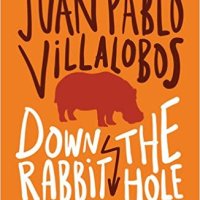

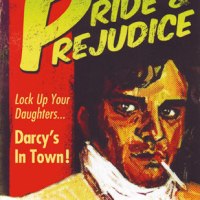
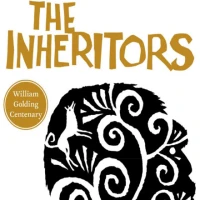

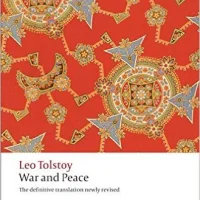
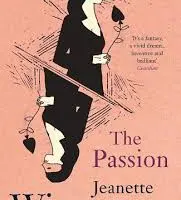


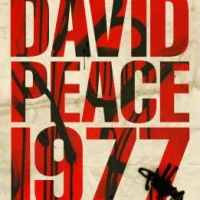



Pingback: In this room the hours would accumulate like grains of sand until they buried him « Pechorin’s Journal
Pingback: July roundup | Pechorin's Journal